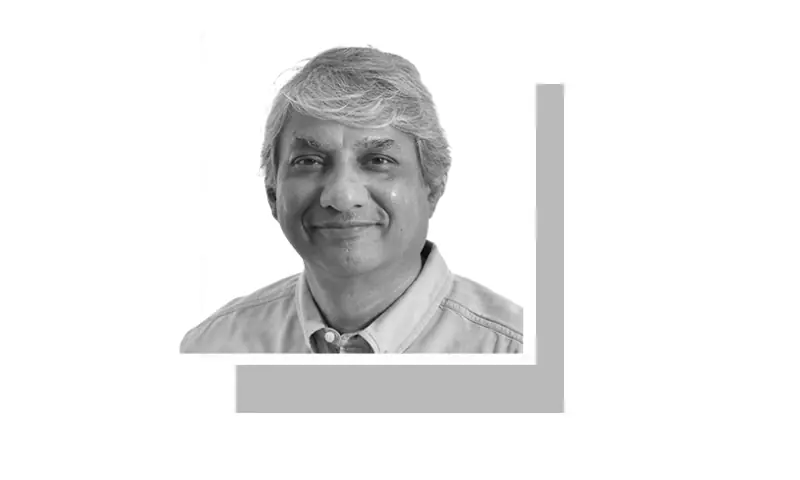IN the summer of 1982, there was talk of a new medical college coming up in Karachi. It was to be Pakistan’s first such institution in the private sector and was being launched by a highly reputed enterprise, the Aga Khan Development Network. An imposing boundary wall along Stadium Road testified to this emerging reality. For prospective medical students like me, this was electrifying news. In those days Pakistan’s medical education landscape was in disarray because of politicised campuses, and the five-year MBBS programme was taking much longer.
Although there had been no official announcement, I made enquiries and came upon the name of a certain Dr Camer Vellani as the project’s central figure. The phone directory listed a number for his clinic, which I dialled one evening with apprehension and anticipation. When Dr Vellani came on the line and took me through the basics of the project, I was hooked. The following year, I was fortunate to be admitted to the Aga Khan University Medical College’s inaugural class, a group of 50 selected from an applicant pool of over 5,000.
The opening week included an orientation by Dr Vellani, who was associate dean. The moment he walked in, the room filled up with his quiet and dignified presence. A slender frame adorned with a scholarly bespectacled bearing, he spoke with a soft but commanding eloquence. After introductory remarks, he scribbled a searching question on the blackboard: “What am I doing here?” — emphasising each word one by one. A fundamental query was thus transformed into several, prodding us to self-reflect. You can judge the impact of that moment from the fact that it has stayed with my classmates and me ever since.
In 1985, when our clinical years began, we encountered Dr Vellani more often. He was founding chairman of the department of medicine and a decorated professor of medicine and cardiology. He taught us how to extract a systematic medical history and conduct an orderly physical examination. I happened to be one of the more excitable students in our class and would try Dr Vellani’s patience from time to time, but he never betrayed any irritation or annoyance. His method was steady gentlemanly persuasion conveyed with calmness and composure.
‘He made us want to be like him.’
Before long, we were all looking up to him not just as a teacher or mentor, but also as a father figure and a role model. We watched with rapt attention while he conducted his outpatient clinics, being unfailingly generous with his time and wisdom to both patients and students alike. We stood mesmerised at the bedside as he elicited challenging physical signs, such as a third or fourth heart sound or an abnormally robust pulsation in the jugular vein. We sat captivated as he elaborated on the biological aspects of heart failure or, his particular favourite, the physics of electrocardiography. The long and short of it is that we outright idolised him.
Our class graduated in 1988 and scattered to pursue advanced specialisation in our chosen fields. I spent a decade in the US and returned in 2000 to join the Aga Khan faculty as assistant professor of neurology. During this time Dr Vellani had served in a series of leadership roles, including a term as rector (equivalent to vice chancellor). He was revered as a medical statesman, combining the qualities of a master clinician, an impactful academic and a seasoned administrator in one inspiring and edifying persona. I went to his office to pay my respects and to apologise for having been rather a boisterous student. Dr Vellani would have none of it. He laughed a soft, gentle laugh and said “Saad, you never gave me any trouble.” Then, with a twinkle and an affectionate smile he added, “Well, perhaps just a little.” I was quickly reminded of the many reasons we had admired and adored him.
For the last few months, the word got out that Dr Vellani was unwell, triggering widespread concern across the institution. Early on the morning of Sept 4, he breathed his last; he was 88. His body may have weakened, but his mind remained sharp. A colleague who was with him in the final hours heard him express gratitude at having been granted a blessed life; perhaps he had a premonition that his time had come. Dr Vellani had exited with the same dignified elegance that had marked him throughout his long and rewarding life, a life of unmatched dedication and exemplary service. He helped and healed generations of sick patients, and motivated and inspired legions of medical students towards clinical excellence. He made us want to be like him. If the most consequential measure of a life is the sum of your good deeds, then Dr Vellani rests most comfortably and the rest of us stand enriched.
The writer is professor of neurology at Aga Khan University.
X: @_saadshafqat
Published in Dawn, September 9th, 2025
